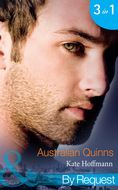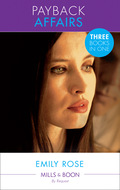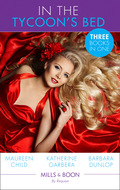Buch lesen: "Hearts Of Gold"

About the Author
MEREDITH WEBBER says of herself, “Once I read an article which suggested that Mills & Boon were looking for new Medical Romance™ authors. I had one of those ‘I can do that’ moments, and gave it a try. What began as a challenge has become an obsession—though I do temper the ‘butt on seat’ career of writing with dirty but healthy outdoor pursuits, fossicking through the Australian Outback in search of gold or opals. Having had some success in all of these endeavours, I now consider I’ve found the perfect lifestyle.”
Hearts of Gold
The Children’s Heart Surgeon
The Heart Surgeon’s Proposal
The Italian Surgeon
Meredith Webber

MILLS & BOON
Before you start reading, why not sign up?
Thank you for downloading this Mills & Boon book. If you want to hear about exclusive discounts, special offers and competitions, sign up to our email newsletter today!
Or simply visit
Mills & Boon emails are completely free to receive and you can unsubscribe at any time via the link in any email we send you.
The Children’s Heart Surgeon
CHAPTER ONE
THE music followed Alex from the ballroom to the bar— deserted now the dancing had started. The band was the best, seducing even the most staid of attendees at the congress onto the floor, and as his feet moved to the beat he felt vague regret that he hadn’t brought along a partner.
He gave a huff of self-mocking laughter as he ordered a brandy.
What partner? He couldn’t remember the last time he’d had a girlfriend for long enough for her to qualify for the word.
His own fault, as his last non-partner had pointed out, but she had been wrong about the cause. Wrong to blame his focus on his work.
What he couldn’t handle in a relationship was emotional dependency. Put that way he sounded cold, which he knew he wasn’t. But what woman would understand that he carried so many emotional burdens and expectations in his work that he was looking for escape from them in his private life?
Impossible, his sister had told him. In any good relationship there has to be an element of dependence…
He shook his head in denial of his thoughts and sipped his brandy, moving his head in the action just enough to realise he wasn’t alone at the bar. Way down the other end of the horseshoe, deep in shadow, he caught a glimpse of silvery hair, moving like a moonbeam on flowing water.
A woman swaying to the music, as alone as he was but feeling the lure of the beat in her body.
He hesitated a moment, aware that what he was about to do was totally out of character, then with great deliberation he put down his glass, stood up off the stool and moved towards her.
She was dressed all in black, which explained why he’d only seen her hair in the shadows, and still she swayed, unaware of his approach.
‘The music’s great. Would you like to dance?’ He spoke quietly but knew he’d startled her, for she stopped abruptly and he could have sworn her pale skin turned even paler.
Behind him, he sensed the barman watching both of them—suspicious of him, protective of his female customer.
It was her turn to hesitate, but then she gave a smile so sad it hurt his heart.
‘I’m not dressed for a ball, and I’m fresh out of fairy godmothers,’ she said, holding out her arms to show him she was wearing black trousers and a high-necked black sweater.
‘We can dance outside,’ he said. ‘On the terrace.’
Then he waited, willing her to say yes—willing her to dance with him because, for some unfathomable reason, it suddenly seemed important that she did.
He waited for ever, it seemed, until she gave a why-not, almost fatalistic kind of shrug and slipped off her stool.
He took her arm, tense as a steel rod, and led her out onto the terrace. Beyond it, manicured lawns led down to a large artificial lake, but the moonlight shining on the water was authentic, and the stars in the black night sky twinkled like fairy lights.
She was slim and lithe, and once she relaxed very light on her feet. In fact, she danced with a grace that made his dancing better—made him feel like someone from an old movie. Fred Astaire? Was that the dancing guy’s name?
Her body fitted his so they moved as one, gliding across the terrace to the strains of the big band inside.
A moment out of time.
He was aware of that even as he held her in his arms, and an inner instinct told him to remember it, so he looked at her face, seeing a dusting of freckles across her pale skin and dark shadows beneath her eyes. He’d seen shadows like those under the eyes of his patients’ parents. Shadows etched by emotional pain and physical exhaustion.
He held her closer, wanting to protect her, forgetting he needed to avoid emotional dependency.
Forgetting he didn’t know her.
He was vaguely aware the real music had stopped, but he heard it playing in his head and danced on, knowing she, too, was hearing it—dancing to it. Then it started up again, a different tempo—slower, more seductive.
He felt her body stiffen beneath his hands, but he wasn’t through dancing yet. Through holding her! Could he will her to open her eyes so he could see their colour? They’d looked dark in the shadows of the bar, but with her fair hair and pale skin, they could be light. Her lips were pinker than the skin around them, which wasn’t saying much. No lipstick, but he could see their shape—their soft, ripe fullness.
Best he think about her eyes again, he told himself, but his feet had guided them to the darkest corner of the terrace and as the music slowed their feet stilled while their bodies kept swaying to the tune, as close as two people could be—two fully clothed people.
Seduced by music, and moonlight on water, and the feel of the woman in his arms, he bent his head and kissed her.
There was a long, indecisive moment as she again stiffened in his arms, then as suddenly relaxed against him. She didn’t quite kiss him back, but didn’t pull away or slap his face, indicating, he decided, by these two negatives that he could continue with this gentle, exploratory quest.
He could feel her heart beating against her ribs and sensed a tension in her, as if kissing a strange man was a very risky business even with two hundred congress delegates and their partners within screaming distance. And while he guessed she wasn’t not enjoying it, she was also poised for flight.
Then suddenly she was with him, opening her lips to him, responding—whatever inhibitions had been holding her released.
Had they really kissed for an hour, or had they danced for longer than he’d thought they had? Afterwards he tried to work out the timing, but found he couldn’t.
Unless they had kissed for an hour…
Could anyone kiss for an hour?
All he knew was that they’d kissed for a long time, demanding more and more of each other until it had seemed they’d known each other’s blood.
Until he’d known they’d had to get off the terrace before they’d become a public spectacle!
‘Can I walk you to your room?’ he asked, voice husky with the passion kissing had aroused.
She leaned back in his arms, and looked up into his face. Dark eyes—brown or hazel, though he couldn’t tell which in the shadows—scanned his face, while his own eyes were riveted on her bruised and swollen—well-kissed—lips.
‘No,’ she said, and pushed away from him, but as he released her he felt a shudder pass through her body, as if his suggestion had repelled her.
When she’d kissed him like she had?
Then she touched his hand and said gently, as if apologising for the shudder, ‘My room’s too far away.’
And with that she departed, not back into the bar where the dancers were now gathering for nightcaps, but down the steps towards the lawn, vanishing into the night’s shadows.
He’d find her again, he vowed as disappointment doused the fire within his body.
The congress ran for three more days, and the hotel was closed to all but congress attendees and their partners.
Partners? He hadn’t seen her at any congress sessions. She was with someone?
Married?
But unhappy—he’d felt her unhappiness from the moment they’d met.
He’d find her. Find out about her.
Kiss her?
That would be up to her!
CHAPTER TWO
‘YOU know something, Henry,’ Annie said, pouring milk over the cereal she’d piled in both their bowls, ‘I hate the idea of starting this new job.’
Henry, far more interested in the preparation of his breakfast than in Annie’s conversation, said nothing, prompting Annie to explain.
‘I know I was excited about it back when it was first offered to me. Really excited. Well, all right, I was over the moon—but that was before I realised Dan Petersen was leaving. I thought Dan would be my boss.’
She lifted Henry’s bowl and put it in front of him.
‘Now I’ve got a new job and a new boss! And there’s something dodgy about it, I know there is. I’ve been invited for little chats with just about every hospital executive, which, even when you consider it’s a new unit, seems strange. And there’ve been looks between those pencil-pushers, and conversations that stop when I walk near them. Definitely dodgy.’
Henry gave a derisive huff, as if he didn’t believe a word she was saying.
‘Then there’s the man himself—the new boss,’ Annie continued, refusing to be put off by his lack of support. ‘You know I don’t listen to gossip—’
Henry’s look of disbelief forced her to add, ‘Well, I do listen, it’s the lifeblood of the hospital, but I don’t repeat it, except to you. And even if I didn’t listen I couldn’t have helped but hear the stories about him—they’re legion. He may be a surgical genius but he’s a tyrant both in Theatre and in the ward, and the words they use about him. “Ruthless” seems to come up most often. Now ruthless, as you and I both know, usually implies a person who’ll do anything to get ahead, so why’s a ruthless top US surgeon with an international reputation coming here, to Jimmie’s, to work? Working here, even setting up a new unit, isn’t going to put four stars on his CV—not even one star, to tell the truth—so why? That’s what I want to know.’
Soft brown eyes looked into hers, but Henry offered no comment. Instead, he turned away, scoffed his breakfast then, realising she hadn’t started hers, looked hopefully at her.
‘You’re not getting it,’ she told him, ‘so don’t sit there drooling all over the floor. Go outside and chase a cat. Bark at something. Wake the neighbours.’
He gave her a look that acknowledged her contrary mood but made no move to offer comfort by bumping his big head against her legs. You’ve only yourself to blame, he was telling her. Or maybe she was telling herself, only it seemed more definitive coming from Henry.
‘That dog doesn’t understand a word you say.’ Her father propelled his wheelchair into the kitchen. ‘They go on tone of voice. Listen.’
In the sweetest, kindest voice a gruff and unemotional man could muster, he called Henry all the harshest names under the sun, berating him without mercy, while the dog fawned at his feet—bumping his head against her father’s knees in utter adoration.
‘We all know that trick, Dad,’ Annie grumbled, picking up her handbag and looping the strap over her shoulder. ‘I’ll leave you two here, bound in mutual admiration, and go to work to earn some money to keep us all.’
Her father grinned at her, while his hand, twisted and gnarled by the rheumatoid arthritis which had also crippled his body, fondled Henry’s head.
‘Someone’s got to do it,’ he said, ‘and Henry’s got a full-time job taking care of me.’
Annie dropped a kiss on his head, patted the dog and left the pair of them in the sunny kitchen. Her going out to work to keep them all was an old joke between them, her father being well enough off to afford to pay for whatever care he might need and to keep her and Henry in relative comfort. But her father knew how much her work meant to her, so had encouraged her to continue her career.
‘Or how much work used to mean to me,’ she muttered to herself as she strode along the tree-lined street towards the hospital. ‘Back when getting back to work was part of feeling normal, and having responsibilities in a job gave me a sense of being in control. Maybe it’s the control thing that’s making me edgy about the new position. Maybe I’m afraid this man will take that away from me. Maybe I’m not ready to lose control again…’
Two schoolboys steered a wide path around her, no doubt taking her for a nutter because she was talking to herself.
‘A lot of people talk to themselves,’ she said, turning to address the words to their departing backs.
The body she slammed into was solid enough to not only keep its balance but to stop her falling as well.
‘Yes, but most of them look where they’re going as they do it,’ a male voice, enhanced by a rich British accent, said, and she looked up into the amused blue eyes of a handsome, well-built man, clad in an impeccable three-piece suit.
‘Not necessarily,’ she felt constrained to point out, backing hastily away from the suited chest. ‘A lot of the ones around here keep their heads right down and mutter, mutter, mutter into their beards. If they have beards.’
She wasn’t sure why she was arguing with a stranger over such a trivial matter.
Or talking to him at all!
She had to get to work. Start the new job. Meet the new boss.
‘Being new around here, I wouldn’t know,’ he said, the blue eyes still smiling into hers in a disconcerting manner—a flirtatious manner.
‘I’ve got to get to work,’ she said, resorting to a mutter once again. Then she added ‘Now!’ because her feet hadn’t started moving in that direction.
‘Me, too,’ blue eyes said cheerfully. ‘I’m heading for the hospital, and you seem to be going in that general direction. Shall we walk together?’
She could hardly say no. He’d come out of a house only four doors up from hers—a house that had been on the market for so long she’d stopped looking at the sign, so had missed the ‘Sold’ banner she now saw slapped across it. That made him a neighbour and to say no would be downright unneighbourly.
‘I guess so.’ Still muttering, though this time it was ungraciously. Now she had a new job, new boss and a new neighbour, and she hated change.
They were walking together now, and she knew it was time for introductions, but couldn’t bring herself to take the initiative, feeling that if she didn’t know his name, she needn’t count him as a neighbour. She’d make idle conversation instead.
‘You’re going to the hospital? Visiting someone?’
It was early but the place allowed relatives in at just about any time.
‘Going to work,’ he said, surprising her, as she’d put him down as a lawyer.
‘At the hospital?’
‘I’m a doctor—a lot of us work at hospitals.’
She knew the eyes would be twinkling but refused to look as he turned sideways towards her and held out his hand.
‘Phil Park. My father wanted to call me Albert or Centennial, but fortunately my mother’s common sense prevailed.’
He dropped his hand when Annie failed to take it, and she could sense he was disappointed his little joke—which he’d probably told a million times—had fallen flat, but Annie was too busy absorbing his name to be smiling at weak jokes.
Phillip Park. His name was on the list of new staff—one of the doctors who had come along in the new boss’s train. Paediatric surgery fellow? Anaesthetist? No, Annie was pretty sure the anaesthetist was a woman—Maggie Walsh.
Annie had personnel files of all the new appointees on her desk, but she’d purposely not read through them, deciding to meet the new staff without any preconceived ideas. Now she was sorry she hadn’t checked. She’d known Alexander Attwood was American, but had assumed the other staff would be Australians from Melbourne, where Dr Attwood had been working for six months.
‘And you are?’ Phil was saying politely.
‘Annie Talbot, former sister in charge of the neonatal special care unit at St James’s Hospital and, from today, manager of the new paediatric surgical unit. Great way to start a working relationship—running headlong into you.’
Phil Park’s hand clasped hers, warm fingers engulfing her palm, holding her hand just a fraction too long.
She withdrew hers carefully and moved a little further away from him, guessing he was a toucher, and not wanting to be the touchee.
‘But that’s great!’ he said. ‘We’ll be working together, and neighbours as well for a while. At least I assume we’ll be neighbours—or are you a health nut, and had covered several kilometres before you bumped into me?’
‘No, we’ll be neighbours,’ Annie told him, though she didn’t share his enthusiasm. Because, with the smiling eyes and hand held too long, she was sure he was flirting with her?
Or because the smiling eyes and hand held too long reminded her of Dennis?
‘Manager of the new surgical unit, eh?’ he asked, not in the least put out by her lack of enthusiasm. ‘How do you feel about that—coming from hands-on nursing in the PICU? That is what your special care unit is, isn’t it? A paediatric intensive care unit? And don’t most unit managers come from a secretarial or management background rather than a nursing one?’
Annie breathed easier. He might rattle on but she’d followed his thoughts and talking work was much better than considering flirtatious new neighbours.
Or Dennis.
‘I’ve mixed feelings about the shift from nursing,’ she told him, ‘but the new job’s a challenge. The new unit is a challenge—I imagine that’s why someone like your boss has come on board. Shifting to Jimmie’s isn’t like taking up a post at one of the renowned children’s hospitals. We’re just starting up. Neurologists and cardiologists—all the specialists, in fact—are still going to refer patients to the bigger hospitals.’
‘Not for paediatric cardiac surgery—not with Alexander the Great on board,’ he said.
‘You call Dr Attwood Alexander the Great?’ Annie was awed by such daring. Everything she’d heard or read about the man had instilled her with enormous respect for him.
Not to mention apprehension about the ‘ruthless’ part.
‘Not to his face.’ Phil retreated. ‘But all of us—Maggie, Kurt, Rachel—use the title when we’re talking about him. He’s come here because of the opportunity to start a small specialised unit that he hopes will be used as a model for other small units. Other hospitals have paediatric surgical units, but they’re not specialised to the extent we’d like to be. They do some congenital heart defects, which is our specialty, but they also do other congenital defects and things like brain tumours, gut obstructions, kidney and liver transplants—the lot.’
He glanced at her as if to see if she was listening, and as she was—and was fascinated as well—she encouraged him with a smile and a quiet, ‘Go on.’
‘Well, Alex hopes that if a small cardiac surgical unit can be made to work, physically, medically and financially, he’ll have a model to set up similar units in city hospitals across the US. At the moment, over there, they have places like Boston Children’s and Cleveland Clinic, maybe ten large hospitals with elite paediatric surgery units, but that means seriously ill babies, often newborn, with complex heart problems requiring surgery, have to travel huge distances for treatment, which not only puts extra stress on them but also disrupts family life and support systems.’
Annie took it all in—even felt a skip of excitement for the vision in her own heart—but at the same time his words puzzled her.
‘Does anyone else know of this plan of Dr Attwood’s? Is the hospital CEO on side? Does the board know? The government? After all, most of our funds come from them.’
She glanced towards Phil and for the first time saw his smile replaced by a frown. She hurried to dispel it.
‘I’m only asking because, as unit manager, I hadn’t heard any of this,’ she explained. ‘I thought we were going to be just another paediatric surgical unit like the ones you’ve mentioned.’
Her voice trailed away as she wondered if she’d missed something in the job description and in the interviews that had followed her application. Although that might explain the ‘little talks’ and her feeling that something ‘dodgy’ was going on!
‘A number of people know,’ Phil said, then he must have realised he’d spoken abruptly, for he found his smile again and favoured her with a particularly warm and teasing version of it. ‘Though I’ve just committed the cardinal sin in Alex’s book and blabbed about it to a virtual stranger before he’s held his briefing.’
A pause, then he grasped her arm and added, ‘You won’t give me away, will you? You’ll look suitably surprised and then delighted when he tells everyone at the staff meeting?’
They were walking through the hospital gates and up the paved path towards the main staff entrance as Phil made this plea. Annie studied him for a moment, wondering why an attractive, self-assured man should be worrying over such a minor indiscretion as telling a colleague something she’d hear very shortly anyway.
The word ‘ruthless’ echoed in her head. Was the gossip even half-right? Was the new boss tyrannical enough to cause his colleague such alarm?
She patted Phil’s hand, still resting on her arm, to reassure him and led the way through the doors, nodding at other staff arriving early for their shift.
‘Trust you to find a beautiful woman before you’ve even entered the hospital,’ a deep voice said, and Annie turned to see another immaculate three-piece suit standing just inside the entrance. Inside it was a tall, rangy man, with a craggy face and the coolest, clearest grey eyes she’d ever seen.
Her heart stopped beating, stuttered back to life, then raced out of control. It couldn’t be…
Yet she knew it was.
Had known it was from the moment she’d heard his voice…
‘Do I know you?’ He reached out a hand towards her as he asked the question, and Annie stepped back.
He sounded perplexed and when she glanced at him again she saw the untidy brows drawn together in a frown as if perplexed wasn’t an emotion he enjoyed.
‘No!’ she said, far too loudly in the small space, then wondered if something less definite—a vague I don’t think so—might have been more believable.
‘This is Annie Talbot,’ Phil said to the suit. ‘She’s our neighbour and our new unit manager. She bumped into me—literally—outside our gate. Your gate. Annie, this is Alex Attwood.’
This cannot be happening. That was Annie’s first thought.
But it is, was her second.
The third suggested it wouldn’t matter. Might not matter. Especially if she stuck to her denial. She’d just go through to her office, sit down and think things through.
After which she could find out about jobs in Botswana or Tibet or somewhere.
Except she didn’t have a passport—not a real one…
‘Dr Attwood,’ she said coolly, gaining some control over her panic and finally responding to Philip’s introduction. ‘Welcome to St James’s. Phil, I’ll see you later.’
She strode away.
Alex watched her long slim legs eating up the yards down the corridor, saw her head move as she acknowledged colleagues and her hand lift to give a slight wave to others.
It was her. He would swear it was. The hair was different—but women were always changing their hair. He knew it was her from the way she moved. He’d watched her stride away from him once before.
And from her voice—low register, somewhat husky…
But he would also swear there’d been no Annie Talbot on the list he’d kept for the last five years. The most likely name, he’d eventually decided, after three days of detective work and straight-out gossip at the congress, had been Rowena Drake, wife of an Australian cardiologist called Dennis Drake. The fact that she was married should have stopped him thinking about her right then and there but, like the prince with the glass slipper, he’d wanted to know for certain who his mystery woman was.
Since coming to Australia six months ago, Alex had tried to find Dennis Drake, but though records of his training existed it appeared he was no longer practicing in Australia. Probably still working in the US, where he’d been five years ago, Alex had decided, and he’d put the matter to rest once again.
Now here she was!
Alex shook his head. He didn’t know that. And she’d said they hadn’t met. The odds of Annie Talbot being Rowena Drake—being his mystery woman—were a million to one, probably even higher than that, given the population of the country and the percentage of women in the figure.
Yet he’d felt that connection, and he would swear she’d felt it, too.
‘Are you listening to me?’
Phil’s question made Alex realise how deeply he’d lost himself in his memories of the past.
‘Not really,’ he told Phil, certain all he’d been delivering had been gossip about their colleague. Although learning more about her might help him…
‘I was saying Maggie phoned just after you left the house. She wanted to know when you hoped to start operating. A colleague has asked her to stand in with him in a liver transplant later tomorrow, but she doesn’t want to say yes until she’s spoken to you.’
‘We won’t be starting tomorrow,’ Alex replied, feeling better now he could focus back on work. ‘I kept the week clear for checking equipment, staff training, talking to local cardiologists, reviewing files of possible patients and generally settling in. I’ll be seeing Maggie at the meeting, we can talk about it then.’
He’d be seeing Annie Talbot at the meeting, too. Seeing a lot of her, in fact. But if it was her, and she’d lied about meeting him before, what kind of base was that for a working relationship?
‘Who are you waiting for?’ Phil had broken the silence again.
‘Waiting for?’
‘We’re standing here in the staff entranceway, which, in case you haven’t noticed, is becoming increasingly congested. You were standing here when I arrived. I assumed you were waiting for someone.’
‘Oh! No! Well, I might have been waiting for you. Actually, I came in, then wondered about exits and entrances—not knowing the hospital—and went back outside to look around. I’d just come back in and was looking at the fire evacuation plan on the wall when you walked in.’
‘You were checking out the fire exit plan?’
Phil’s disbelief was evident and Alex wasn’t surprised but, having seen the plan on the wall, it had seemed like a good excuse. He could hardly admit he’d seen Phil come through the gates with the woman, and something about her—the way she’d moved—the way her hair had swung to her shoulders, though it was dark, not fair as moonlight—had caused a hitch in his breathing and held him rooted to the spot.
‘Let’s go,’ he said, refusing to be drawn any further into a totally pointless conversation. ‘There’s a small lecture room included in the space the hospital has allotted us. It’s not ideal for staff meetings as I’d rather we were all on one level, but with space at a premium in all hospitals we were lucky to get it. Nine o’clock, we’re on show. That’s if your pretty woman has organised things for us.’
‘She is pretty, isn’t she? And she struck me as an efficient type—power suit and all. Though she told me she was head of the PICU before she took this job. Did you know that? Do you know of many hands-on nurses who’ve gone into admin positions?’
Alex felt his forehead tightening and realised he was frowning, though he tried hard to control this facial expression, knowing it made him look especially grim and therefore intimidating to the families of his patients.
‘No, I didn’t know, but I don’t think it matters as long as she’s efficient at her job. I did ask to be involved in choosing the manager—after all, she’ll be acting as my personal assistant as well—but I was told in no uncertain terms they already had someone for the job.’
‘You didn’t do too badly, getting to bring your own fellow, anaesthetist, perfusionist and head theatre nurse.’
‘It was a condition of my employment,’ Alex said briefly, his mind, now they’d reached the fourth floor where the unit would be situated, on what lay ahead. He may have brought key figures with him, people who’d worked with him during his time in Melbourne, but for the unit to succeed it had to be a team effort. An image of Annie Talbot flashed through his mind. She would be both the handson team leader and his liaison with the powers that be within the hospital. The second element was as important as the first—in fact, it could be the key to success.
So he had to get over his reaction to her. Even if she was the woman on the terrace, she didn’t want to remember it. Didn’t want him to remember it.
Well, he’d tried darned hard not to, yet for five years his subconscious had measured all women against her.
Against a ghost.
A wraith.
A woman he didn’t know!
Annie slumped down at her desk and buried her face in her hands. This couldn’t be happening.
It was!
OK, so did it matter?
She took a deep breath and thought about that one.
In some ways yes, because it had physically hurt her to deny they’d met before, when it had been that night—that small experience of dancing with that man and kissing him—which had freed her from her living hell.
Kissing Alex Attwood, although she’d had no idea at the time who he was, had shattered the chain that had bound her to Dennis. Kissing Alex Attwood had made her turn away from the hotel room where her husband had slept, knocked out by a drug he’d been given for seafood poisoning, and keep walking until she’d reached the nearest town, where she’d gone into the police station and asked the sleepy man on duty if she could phone Australia.








